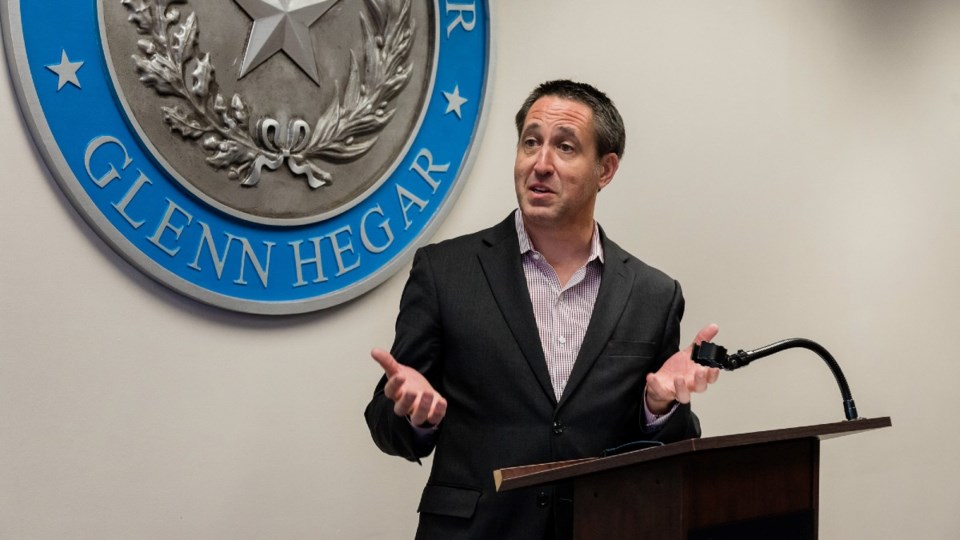Texas lawmakers will have a record-setting $188.2 billion in revenue available for general-purpose spending during the upcoming budget, an increase of 26 percent from the previous year.
“The revenue increases that we’ve seen have been, in many ways, unprecedented, and we cannot reasonably expect a repeat,” said Texas comptroller Glenn Hegar in a press release on Jan. 9 as he released the Biennial Revenue Estimate (BRE).
“We are unlikely to have an opportunity like this again. This budgeting session is truly a once-in-a-lifetime session,” Hegar said.
According to Hegar, the increase is a direct result of the state's economic growth since the end of the pandemic restrictions, coupled with spikes in energy prices and the highest rate of general price inflation in more than 40 years.
“The Texas economy is red-hot. We are leading the United States forward in the global marketplace and it is clear for all to see,” said Lt. Gov. Dan Patrick, who leads the state senate, in a press release on Jan. 9.
The BRE report outlines significant sources of state revenue, including:
- Sales tax revenues, which are expected to increase by nine percent from the 2022-23 biennium, reaching $87 billion
- Oil production tax collections are projected to generate $13 billion, up 11 percent from 2022-23
- Motor vehicle-related taxes, including sales, rental and manufactured housing taxes are expected to reach $12 billion, up four percent from 2022-23
- Franchise tax collections are projected to generate $8 billion, up six percent from 2022-23. For all funds, franchise tax revenue is estimated to generate $12 billion, up six percent from 2022-23
- Natural gas tax collections, which are expected to raise $8 billion, down four percent from 2022-23
Of the $188 billion available for general-purpose spending, $10 billion will be reserved for the Economic Stabilization Fund and the State Highway Fund.
Another $155 million must be set aside to cover a shortfall in the Texas Guaranteed Tuition Plan, also known as the Texas Tomorrow Fund.
Although the balance sheets are looking promising right now, Hegar warns that the final balance for the BRE will be determined by actions taken by the 88th Legislature and by actual revenue collections during the remainder of this fiscal year.
“In the event of significant changes in economic conditions or other relevant factors, this estimate will be updated to ensure that lawmakers’ deliberations are based on the most accurate and timely information available,” Hegar said.
Hegar also warns lawmakers to be diligent with the upcoming budget as he does not anticipate further increases in the coming years.
“I know very well that the Legislature decides how to use all the money they have available, yet I must advise some caution as these decisions are made: Bluntly, don’t count on me announcing another big revenue jump two years from now,” he said while suggesting thoughtful investment in the following:
- The state’s electrical grid
- Broadband connectivity
- Port and water infrastructure
- Salary adjustments for state employees
- Teachers and nurses; and development of our skilled trade workforce
- A meaningful tax reduction to ease the burden of Texans who are grappling with inflation
“Well-thought-out spending proposals can have positive results without creating demands on general revenue that might be difficult to meet in years to come,” Hegar added.
State lawmakers began the regular session of the 88th Legislature on Jan. 10. Members of the Texas Senate will discuss how to use the revenue, including how to create tax relief for Texans.
“There are a range of challenges facing our state – first and foremost, reinforcing our grid with dispatchable power – but I am confident that we can continue to strengthen Texas so it remains the best place to live, work, raise a family and start a business,” Patrick said.
For more information, click here.




